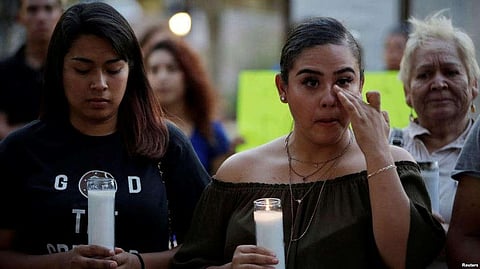- 'Dreamers' Vow to Fight to Keep DACA Until the Bitter End
- Sessions Rescinds DACA Program
{"type":"video","tracklist":false,"tracknumbers":true,"images":true,"artists":true,"tracks":[{"src":"https://www.newsgram.com/wp-content/uploads/2017/09/e2325691-90e7-4f80-884e-ae453c026300_mobile.mp4","type":"video/mp4","title":"'Dreamers' Vow to Fight to Keep DACA Until the Bitter End","caption":"","description":"","meta":{"length_formatted":"2:39"},"dimensions":{"original":{"width":480,"height":270},"resized":{"width":674,"height":379}},"image":{"src":"https://www.newsgram.com/wp-includes/images/media/video.png","width":48,"height":64},"thumb":{"src":"https://www.newsgram.com/wp-includes/images/media/video.png","width":48,"height":64}},{"src":"https://www.newsgram.com/wp-content/uploads/2017/09/5f39a832-8478-439f-9e7c-d522482b55fd.mp4","type":"video/mp4","title":"Sessions Rescinds DACA Program","caption":"","description":"","meta":{"length_formatted":"1:44"},"dimensions":{"original":{"width":640,"height":360},"resized":{"width":674,"height":379}},"image":{"src":"https://www.newsgram.com/wp-includes/images/media/video.png","width":48,"height":64},"thumb":{"src":"https://www.newsgram.com/wp-includes/images/media/video.png","width":48,"height":64}}]}


